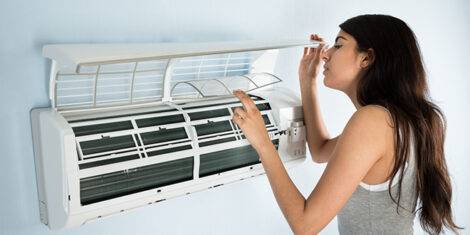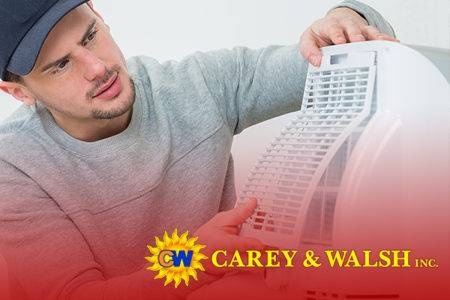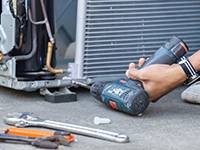In the throes of a sweltering summer or during a sudden heat wave, the last thing any homeowner or business wants is an air conditioner (AC) that falters. Unfortunately, even the most reliable AC units can encounter issues. Understanding common AC problems and knowing how to address them safely can be the difference between a minor inconvenience and a major headache. In this comprehensive guide, we’ll delve into the world of air conditioning, highlighting common issues that may arise and providing practical, safe solutions. Whether you’re a DIY enthusiast or someone who prefers to leave it to the professionals, this article will equip you with the knowledge you need to keep your cool. From identifying simple problems you can fix yourself to recognizing when it’s time to call in expert help, we’ve got you covered. Let’s demystify those AC troubles and explore how to maintain your unit effectively for lasting comfort and efficiency.
Understanding Your AC: Common Issues and What They Mean

Air conditioners are complex systems, but many common problems are surprisingly straightforward to identify. Understanding these issues is the first step in ensuring your air conditioning unit runs efficiently.
- Poor Airflow: If your AC is running but not cooling the room effectively, the issue could be poor airflow. This is often due to clogged or dirty filters. Air filters should be checked monthly and replaced or cleaned as needed. Clogged air filters not only reduce efficiency but can also lead to more serious problems like frozen evaporator coils.
- Unusual Noises: Different sounds can indicate various problems. A rattling noise might suggest loose components while grinding or squealing noises can signal something more serious, like a belt slipping out of place. Addressing these noises promptly can prevent more extensive damage.
- Water Leaks Inside and Outside: AC units can produce condensation, but they should not accumulate or leak into your home. Indoor leaks might indicate a clogged condensate drain line or a rusted overflow pan. Outdoor leaks, especially around the compressor, could be due to refrigerant issues.
- Thermostat Problems: Sometimes, the problem is not with the AC unit itself but with the thermostat. Incorrect calibration or a malfunctioning thermostat can lead to your AC not turning on or not producing cold air. Simple recalibration or battery replacement can often resolve these issues.
- Warm Air Blowing Out: If your AC is blowing warm air, check if the thermostat is set to cooling mode and at the correct temperature. If it is, the issue might be a restricted airflow or a refrigerant leak. Both issues significantly reduce cooling efficiency.
- Bad Odors: Musty smells can indicate mold or mildew inside your unit or ductwork, necessitating a thorough cleaning. A burning smell, on the other hand, could signal an electrical issue and require immediate professional attention.
By recognizing these common air conditioner problems, you can quickly determine whether you can handle the issue yourself or need to call in a professional. Regular maintenance, like cleaning or replacing filters, checking thermostat settings, and ensuring there’s no debris around the unit, can help prevent many of these issues.
DIY Fixes for Minor AC Problems
For the hands-on homeowner, there are several minor air conditioning system problems that can be safely addressed without professional help. Here’s how to tackle them:
- Replacing or Cleaning Air Filters: One of the simplest yet most effective DIY AC maintenance tasks is handling the air filters. A clogged air filter can lead to a host of issues, including reduced airflow and efficiency. Check your filters monthly and clean or replace them as needed. This not only enhances your AC’s performance but also improves indoor air quality.
- Unclogging the Drain Line: The drain line can become clogged with algae, dirt, and debris, leading to water leaks and reduced efficiency. You can clean this line with a mixture of vinegar and water or by gently using a plumber’s snake.
- Checking and Adjusting the Thermostat: Ensure your thermostat is correctly set to ‘Cool’ and that the temperature setting is lower than the current room temperature. If your thermostat runs on batteries, replacing them annually is a good practice.
- Cleaning the AC Coils and Fins: Over time, the AC’s evaporator and condenser coils can accumulate dirt, reducing their ability to absorb heat. Gently cleaning these coils can improve your system’s efficiency. Similarly, straightening bent fins on the condenser can aid in better airflow.
- Resetting the Circuit Breaker: If your AC unit doesn’t turn on, it might simply be a tripped circuit breaker. Locate your circuit panel and look for a switch that’s moved to the ‘off’ position. Flipping it back on can sometimes solve the problem.
These steps are manageable for most homeowners and can often resolve minor issues quickly. However, it’s important to recognize your limits. If you’re uncomfortable performing any of these tasks, or if the problem persists, it’s time to call a professional. Regular DIY maintenance can extend the life of your AC unit and improve its overall performance.
When to Call the Professionals: Recognizing Serious AC Problems

While some AC problems can be fixed with a little DIY effort, others require the expertise of a professional. Knowing when to call in the experts is crucial for maintaining the safety and longevity of your system.
- Refrigerant Leaks: If you notice your AC is not cooling as effectively as it should, and there are signs of ice on the coils, you might have a refrigerant leak. Refrigerant issues are not just about topping up the fluid; they require professional equipment and expertise to fix the leak and recharge the system correctly.
- Electrical Issues: Any problem that involves the electrical components of your AC, such as frequent tripping of the circuit breaker, should be handled by professionals. Electrical issues can be hazardous and are often indicative of a more significant underlying problem.
- Strange Sounds or Smells: If you hear grinding, hissing, or banging sounds, or if you notice a strong electrical or burning smell, these are signs of serious problems. Such issues can indicate motor damage, electrical faults, or other critical failures.
- Poor Cooling or Airflow After Basic Troubleshooting: If you’ve tried cleaning filters, checking the thermostat, and ensuring there are no obvious airflow obstructions, but your AC still struggles to cool your space, it’s time to call in the pros. This could be a sign of a more complex issue like a failing compressor.
- AC Unit is Frequently Cycling On and Off: If your AC unit is constantly turning on and off, this short cycling can strain the system and lead to premature failure. Professional technicians can diagnose and resolve underlying issues causing this behavior.
It’s important to remember that AC systems are complex and can be dangerous to work on without the proper knowledge and tools. Professional HVAC technicians have the training, experience, and equipment to diagnose and safely repair complex issues. Regular professional maintenance can also help prevent these serious problems and extend the lifespan of your AC unit.
Preventive Measures: Keeping Your AC Problem-Free

Regular maintenance is key to preventing common AC problems. By taking proactive steps, you can ensure your system runs smoothly, efficiently, and with fewer unexpected breakdowns. Here are some preventive measures to keep your AC in top condition:
- Regular Filter Changes: One of the easiest yet most effective preventive measures is regularly changing or cleaning your AC filters. This should be done every 1-3 months, depending on usage and environmental factors like pet dander and dust.
- Seasonal Inspections: Schedule professional inspections of your AC system at least once a year. Technicians can spot potential issues before they escalate, clean components that are difficult to reach, and ensure the system is operating at peak efficiency.
- Keeping the Area Around Outdoor Units Clear: Ensure the outdoor unit of your AC is free from debris, leaves, and other obstructions. A clear area around the unit allows for optimal airflow and reduces the strain on the system.
- Checking and Sealing Ductwork: Leaky ducts can significantly reduce the efficiency of your AC system. Have a professional inspect and seal your ductwork to prevent loss of cool air and ensure even distribution throughout your space.
- Installing a Programmable Thermostat: A programmable thermostat can help maintain consistent temperatures and reduce the workload on your AC unit. It also helps in saving energy by adjusting the temperature when you are not home.
- Being Mindful of Appliance Use: Appliances generate heat. Using them strategically during cooler hours can reduce the heat load in your home, easing the burden on your AC.
By implementing these preventive measures, you can significantly enhance the performance and lifespan of your AC unit, reducing the likelihood of facing common problems.
Navigating AC Emergencies: Immediate Steps Before Professional Help Arrives
Even with the best maintenance, emergencies can occur. Knowing how to respond in these situations can prevent further damage to your AC system and keep you safe. Here are steps to take before professional help arrives:
- Power Off the System: In any AC emergency, the first step should be to turn off the system. This prevents potential damage to the unit and safeguards against electrical hazards.
- Identify the Problem: If you can safely identify the issue, such as ice formation on the coils or a strange noise, it can help you communicate more effectively with the technician. However, don’t attempt any repairs yourself.
- Check for Electrical Issues: If the emergency involves electrical problems, such as burning smells or sparks, avoid touching the unit. Wait for professionals as they are equipped to handle electrical hazards safely.
- Minimize Heat Sources: If your AC has stopped working, reduce other heat sources in your home. Close curtains to block sunlight, avoid using heat-generating appliances and keep doors and windows closed to retain as much cool air as possible.
- Provide Ventilation if Necessary: If there’s a risk of refrigerant leakage, ensure the area is well-ventilated—open windows and doors to disperse any potentially harmful gases.
- Contact a Professional Immediately: In an emergency, promptly contact a professional HVAC service. Provide them with as much information as possible about the problem and your system.
While these steps can help mitigate immediate concerns in an AC emergency, they are not substitutes for professional diagnosis and repair. Quick, expert attention is necessary to safely and effectively resolve serious AC problems.
Stay Chill with Carey & Walsh
Ready to ensure your AC runs smoothly? 🌞🌬️ Contact Carey & Walsh. for expert assistance in AC maintenance and repair. From quick fixes to complete overhauls, we’re here to keep you cool and comfortable. Contact us today for reliable service and peace of mind. Your comfort is our commitment! ☎️🛠️💨



